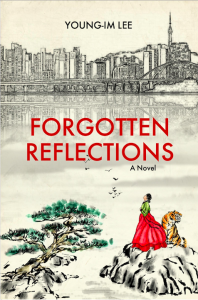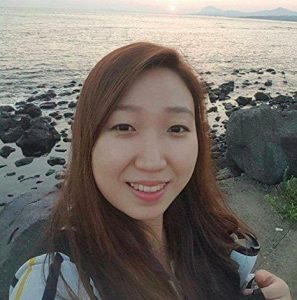Today I’m delighted to introduce you to a marvelous new author and her piece of historical fiction – Forgotten Reflections – about courageous women during the Korean War.
The Book
In the current international climate where North Korea takes center stage, “Forgotten Reflections” weaves an inspirational tale of family, lost memories, folklore and an unforgotten history, spanning three generations as South Korea rises from the ashes.
DARE TO DREAM IN THE MIDST OF WAR.
1945. Rice fields seem endless in a quaint farming village of South Korea, yet Iseul and the villagers have been on the verge of starvation for as long as they can remember; the last of their Japanese colonizers have taken every last grain with them. In the newly independent Korea, Iseul dreams of what her future might bring. Yet, war is on the horizon, and the boy she has fallen for is an alleged North Korean communist spy.
Amidst war, Jung-Soo and Iseul embark on a comic journey of self-discovery across the mountainous peninsula, as they are aided by the occasional appearances of long forgotten legendary figures. Music helps them pass the time, as does the radio and the crafty carpentry skills of Iseul who would eventually make history with her handcrafted hanji paper. Unexpected friendships are forged, love burgeons and betrayal taints their elusive dreams.
The Interview
You mention that the book was inspired by your grandmother’s own experiences. Tell us about her story and your decision to write the book.
I had been living with my maternal grandmother for a year when one day, I went to watch a movie with her. It was one of those family-friendly comedies set during the Korean War. As I sat there watching my grandmother watch this somewhat “out of this world” film, I began wondering how jarring it might be for someone who has actually been through war.
I began asking her questions about what she thought of the movie, and though she was polite and said she liked it, I felt I wasn’t getting the full story. I probed her and she began telling me snippets of her life during that era. This time, I was shocked by her response, not because she narrated her story full of emotion and gore, but because she was so nonchalant about the realities of war (bodies strewn everywhere and sounds of death and rape). She then proceeded to tell me one particular story that caught my attention: At around the age of seven, my grandmother stumbled on an underground bunker at her school where she found a particularly white sheet of paper. Without knowing the contents of the page, she had taken that peculiar sheet home. Her brother later discovered it to be a communist pamphlet and contacted the authorities, leading to the arrest and execution of over thirty communists, including my grandmother’s own teacher. For years after, my grandmother’s brother was on the run from family members of those executed that day.
From this story, I began piecing together a plot that included paper, contemplating on its various forms (trees that are cut down to make paper, household items to instruments that seem to give voice to inanimate pieces of wood). It was my way of creating an allegory of South Korea’s development as a country, rising from the ashes of war to become the modern first world nation we are today.
But most of all, I wanted to show South Korea in a more realistic light, not just another rags to riches story, and certainly not as merely the country next door to North Korea. This is a study of national and personal identity, wrapped up in a coming-of-age adventure. It is a warning, but also a call to action to begin to search for our own national and personal voice, despite our long history of foreign invasions.
Pieces of the plot have also been taken from my experience translating for U.S. and Filipino veterans of the Korean War who were visiting South Korea at the time. The little boy “Zion” in the story is dedicated to one Filipino soldier who had come back to Korea in search of a Korean boy who had been his “errand boy.” At the time, no newspaper or journalist was interested in an interview with a Filipino soldier. I am indebted to these nameless soldiers.
The Author
Young-Im Lee was born in Mokpo, South Korea and relocated to Manila, Philippines at the age of one where she grew up in an international setting. She graduated with a BA in English Language and Literature from Seoul National University, and a MA in English Literary Studies from the University of York(UK). She currently resides in Seoul, South Korea. For more information, visit her on Facebook, GoodReads, or on her website.


 Jill-Elizabeth LinkedIn
Jill-Elizabeth LinkedIn





Leave a Reply